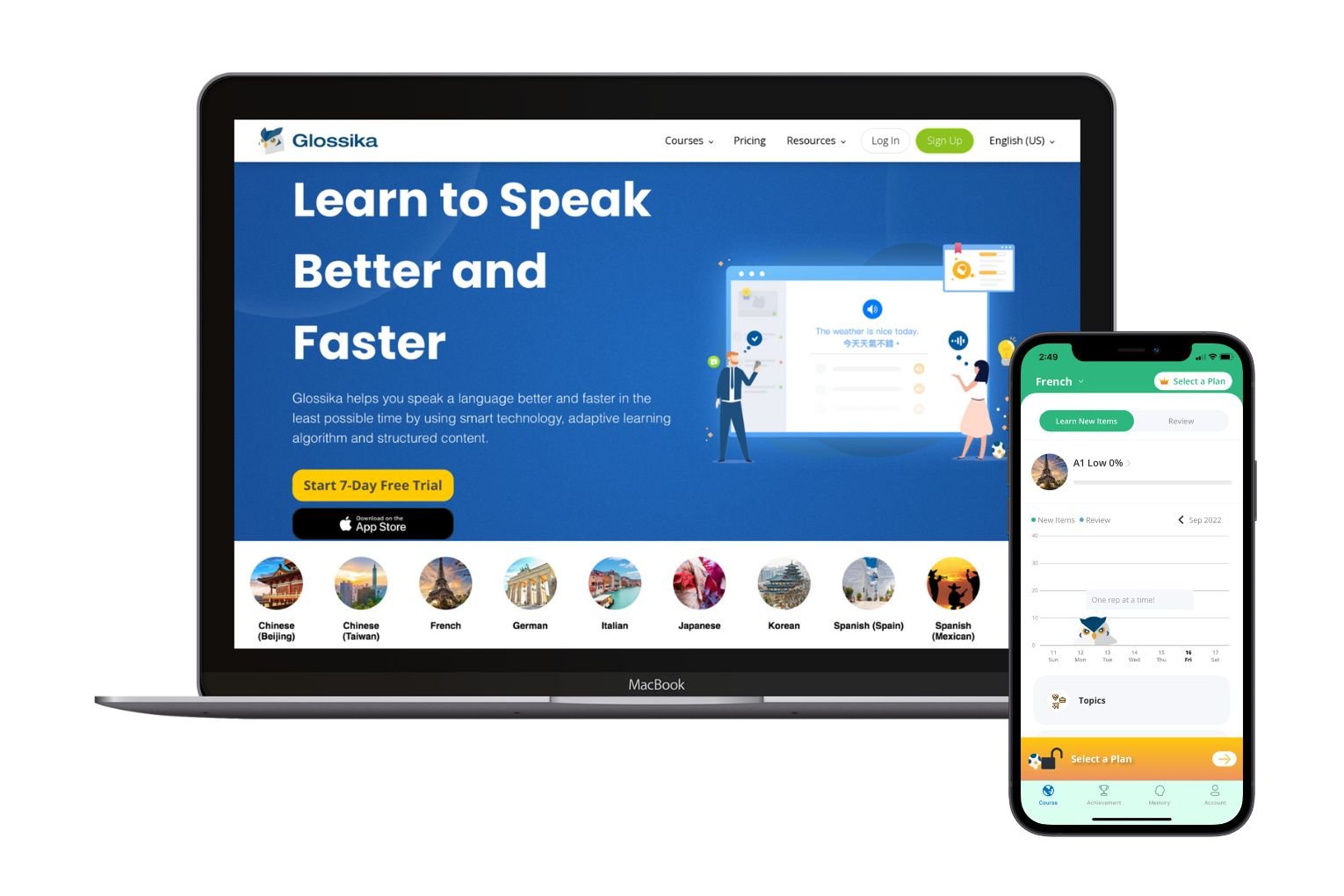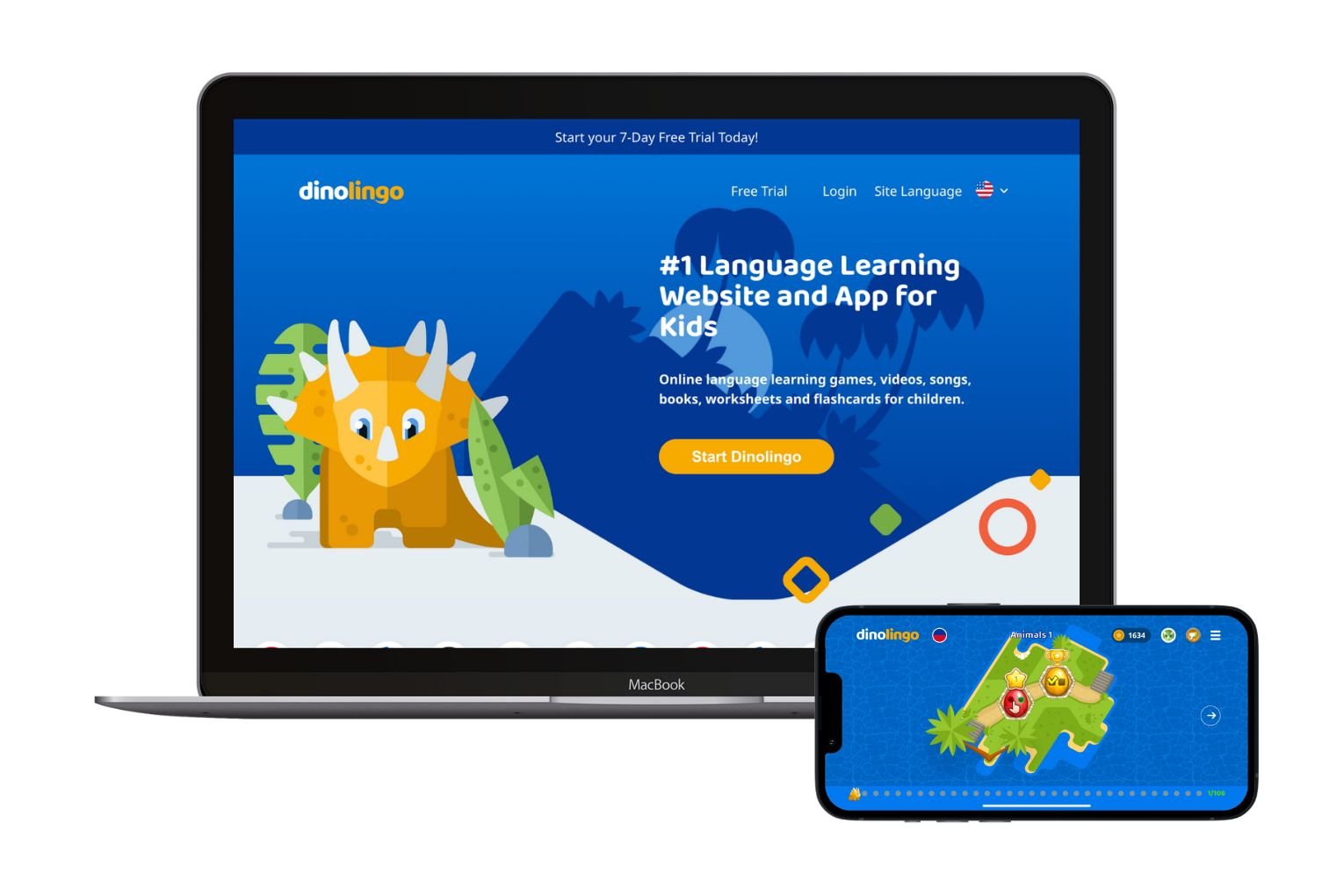Is Welsh A Useful Language To Learn? The Best Way To Learn Welsh (3 Tips For Success)
Is Welsh A Useful Language To Learn? The Best Way To Learn Welsh (3 Tips For Success)
Affiliate Disclaimer: This post contains affiliate links. This means I will earn an affiliate commission if you click and/or make a purchase through the link (at no extra cost to you). And of course, I only recommend products I’ve used from companies I completely trust and love. For more information please see my disclosure.
What Is The Best Way To Learn Welsh?
Learning a new language can seem like a big challenge. Maybe you want to connect with your Welsh heritage, travel to Wales without feeling lost, or simply enjoy the beauty of another language.
Good news: learning Welsh is easier than you might think. One awesome fact is that Welsh is the oldest language in Europe that is still spoken today.
Welsh has a rich and complex history, with influences from Celtic, Latin, and English. It’s an official language in Wales and used by approximately 20% of the population.
This article will guide you through the best resources and strategies for picking up this beautiful language from the comfort of your home.
RELATED: How To Learn A Language At Home: 11 Easy And Fun Strategies.
By covering basics, diving into comprehensive platforms, and sharing effective learning tips, we provide everything needed for first-timers or those looking to brush up on their Welsh skills.
Get ready to say "Croeso" (Welcome) to your Welsh journey!
Stay with us; it's going to be an exciting ride!
Overview Of The Welsh Language
The Welsh language, a treasure of Wales, holds the essence of the country's culture and history. With its roots stretching back to the 6th century, Welsh (Cymraeg) stands as one of Europe's oldest languages, continuing to flourish across generations.
This Celtic language shares its linguistic family tree with Breton and Cornish, showcasing a rich tapestry of sounds unique in its pronunciations and intonations. Mastering these sounds is your first step towards conversing like a native speaker.
Embarking on your journey through the Welsh linguistic landscape reveals an engaging alphabet that includes characters unfamiliar to English speakers but integral for crafting authentic Welsh expressions.
For example, the "ll" and "ch" sounds possess no direct English equivalents, adding character and depth to this lyrical language.
A Brief History Of The Welsh Language
The Welsh language, with its melodious sound and complex structure, boasts a storied past that mirrors the turbulent and rich history of Wales itself.
From its emergence in the 6th century as a distinct form from Brittonic, Welsh evolved through the Middle Ages, becoming the medium for much of the nation's poetry, prose, and legal documentation.
The Acts of Union in 1536 and 1543, however, marked the beginning of a challenging era for Welsh, introducing English as the realm's official language and initiating centuries of linguistic decline.
Despite this, the 19th and 20th centuries witnessed a passionate revival movement, culminating in legislative acts aimed at protecting and promoting the language.
Today, Welsh thrives as a living language in Wales and beyond, taught in schools, featured in media, and used in daily communication, symbolizing the resilience and cultural pride of the Welsh people.
Why Learn Welsh?
Studying Welsh unlocks more than linguistic opportunities; it unveils a wealth of cultural heritage and fosters connections with communities in Wales and worldwide.
Engaging with the Welsh language allows language learners to explore an integral part of the United Kingdom's heritage, offering insights into traditions, literature, music, and festivals unique to Wales.
This connection fosters a deeper understanding and appreciation of cultural diversity, making learning Welsh not only an educational endeavor but also an enriching personal experience.
Moreover, mastering Welsh enhances your resume by adding a valuable skill set that is increasingly sought after in various sectors such as education, public services, media, and tourism.
For those considering travel or work in Wales—or even remote collaborations with Welsh speakers—being able to communicate in Welsh can significantly improve interactions with locals and professionals alike.
Whether it’s grasping new words through Bluebird lessons or exploring eBooks related to Wales’ culture—the opportunities are boundless for engaging actively with content that elevates your proficiency every step of the way.
Understanding The Basics Of Welsh
Pronunciation
Welsh pronunciation can be a bit daunting for English speakers because of its many different sounds. The language has 29 letters in its alphabet, including several digraphs and trigraphs - combinations of two or three letters that represent one sound.
One of the most distinct sounds in Welsh is the "Ll" sound, which is a voiceless lateral fricative. The "Ll" sound poses a challenge for many learners, as it's distinct to Welsh, sounding somewhat like "thl."
It is made by placing the tongue on the roof of the mouth and blowing air out over the sides. This can be quite challenging for non-native speakers to master!
Another common feature in Welsh pronunciation is mutations. Mutations are changes in the beginning of words caused by certain grammatical factors or preceding words.
For example, "bwyd" (food) becomes "fy wyd" (my food) when preceded by the possessive pronoun "fy". These mutations can be tricky for learners to remember and apply correctly.
Grammar
Welsh has a relatively simple grammar compared to other languages. It follows the same basic sentence structure as English - subject-verb-object. However, it does have some unique features that take time to master.
One of the most challenging aspects of Welsh grammar is its use of mutations. Mutations are changes in word forms based on their grammatical function or the word that comes before them.
There are three types of mutations in Welsh - soft, nasal, and aspirate - which can be quite confusing for beginners.
Another important aspect of Welsh grammar is gender. Unlike English, Welsh nouns have a specific gender assigned to them, either masculine or feminine. This also affects the form of adjectives used to describe them.
Vocabulary
Welsh vocabulary is heavily influenced by its Celtic origins, with many words that are similar to those in Irish and Scottish Gaelic. However, it also has borrowed words from English, Latin, and French over the centuries.
One unique aspect of Welsh vocabulary is its use of compound words. Instead of using a space or hyphen to separate two words, Welsh combines them together to form a new word.
For example, "ci" meaning dog and "ein" meaning "our" can be combined to create the compound word "cŵn ein", which translates to "our dogs".
Another interesting aspect of Welsh vocabulary is its use of multiple words with similar meanings. This allows for more descriptive and nuanced language. For instance, there are multiple words for the color "red" in Welsh, such as "coch", "goch", and "rhudd".
Building a strong Welsh vocabulary is essential for comprehension and communication. Start with common phrases and everyday words to establish a foundation that you can gradually build upon.
Flashcards can be an effective method for memorization, especially for learners who benefit from visual aids. Additionally, integrating Welsh into your daily life by labeling items in your home or using Welsh in conversations where possible accelerates this process.
RELATED: 13 Ways To Effortlessly Integrate Studying Into Your Language Learning Routine.
This immersive method facilitates the organic learning of new vocabulary and idiomatic phrases, enhancing both your language proficiency and cultural understanding.
Alphabet
Mastering the Welsh alphabet is your first step toward fluency in this beautiful language. The Welsh alphabet has unique sounds and characters that might seem unfamiliar at first glance.
You'll find 29 letters, some of which are not present in the English alphabet. For example, "ll" and "ch" create sounds distinct to the Welsh language. Learning these unique characteristics early on will ease your journey as you advance.
Pronouncing each letter correctly plays a crucial role in mastering basic conversation skills in Welsh. Many online resources offer audio examples to help learners grasp the correct pronunciation of each letter and word.
Spelling
Spelling in Welsh might seem tricky at first. However, once you understand the patterns and rules, it becomes much easier. Unlike English, Welsh follows a consistent spelling system.
One of the most important things to note is that letters are often doubled in Welsh. For example, "ll" and "dd" are common double letters in words like "Llanberis" and "Cymru".
Additionally, some consonants change their spelling when placed at the beginning or end of a word, such as "f" becoming "ff".
Another interesting aspect of Welsh spelling is that it uses diacritical markings - accents and other symbols - to denote different sounds. For example, "â", "ê", and "ô" represent long vowels while "ŵ" and "ŷ" denote a distinct sound not present in English.
Plurals
In Welsh, plurals are formed by adding a suffix to the end of a word. This suffix is usually "-au" for masculine or feminine nouns and "-iau" for neuter nouns. For example, "ci" (dog) becomes "ciau" in plural form.
It's important to pay attention to the gender of nouns when forming plurals in Welsh, as the suffix may vary depending on the gender of the noun. For example, "tad" (father) becomes "tadau" in plural form for masculine nouns, but "mam" (mother) becomes "mamu" in plural form for feminine nouns.
However, there are also irregular plurals in Welsh that don't follow this pattern. Some words simply add an "s" at the end to indicate plurality, such as "bws" (bus) becoming "bwys" in plural form.
Other words have completely unique plural forms, such as "brawd" (brother) becoming "brodyr" in plural form. These irregular plurals must be memorized and cannot be formed by simply adding a suffix.
When using plural nouns in conversation, it's important to also use the correct form of verbs and adjectives. For example, "dywed" (say) becomes "dywedodd" (said) when referring to multiple people or objects.
Basic Conversation
Starting with "Su'mae," which means "how is," shows you're making an effort to engage in basic Welsh conversation, and it's a welcoming way to begin any interaction. This traditional greeting invites someone to share about their day or feelings, setting a friendly tone right off the bat.
Learning key phrases like "Croeso" (Welcome) or "Diolch" (Thank you) can also greatly enhance your ability to connect with speakers from North Wales or anywhere Welsh is spoken. These expressions are essential building blocks for anyone taking their first steps into language learning.
Listen closely to native speakers and try mimicking their pronunciation for these key words and others. This method will not only help you grasp the basics of conversational Welsh but also improve your accent and understanding of the language’s rhythm.
Engaging in simple exchanges using common greetings, questions, and responses turns theory into practice and opens doors to richer dialogue as your skills advance.
Remembering that practice makes perfect, incorporating these basic conversations into daily routines provides a solid foundation in becoming fluent in Welsh.
Comprehensive Online Platforms For Learning Welsh
Explore a variety of online platforms offering Welsh lessons that make learning engaging and accessible from anywhere. These resources will kickstart your journey to becoming a fluent Welsh speaker, so keep reading to discover more.
Glossika
Glossika stands out as a great place for language learners aiming to become fluent Welsh speakers. This platform uses spaced repetition systems (SRS) to help solidify vocabulary and grammar in your memory.
You get to practice sentences instead of isolated words, making it a good course for immersing yourself fully in the language. Glossika adapts its lessons based on your progress, providing a more personalized experience.
The platform offers both audio and text resources, enabling you to improve your listening and reading skills simultaneously.
RELATED: Glossika Review: Helpful Or Overhyped? What You Need To Know!
For those who are always on the move, Glossika's mobile-friendly design ensures that Welsh lessons can fit into even the busiest schedules.
Its method focuses on practical usage rather than theoretical knowledge, which is essential for real-life conversations.
As we explore other comprehensive online platforms like Bluebird Languages next, keep in mind that combining different resources can enhance your language learning journey significantly.
Bluebird Languages
Moving from Glossika to Bluebird Languages, you'll find another fantastic option for learning Welsh. Bluebird Languages presents a comprehensive app with lessons, practice games, and quizzes spanning over 100 Welsh topics.
Its lessons are structured in a well-organized manner, starting from the basics and gradually progressing to more advanced concepts.
Bluebird Languages uses the spaced-repetition method to help you learn and retain new vocabulary more effectively. Its app design is user-friendly, making it ideal for both beginners and advanced learners.
RELATED: Bluebird Languages Review: A Proven Method To Reach Expert Fluency In Record Time.
Its lessons range from easy to more challenging levels, designed specifically to boost your understanding and retention of the language progressively.
The app also offers personalized learning paths, allowing users to focus on their specific learning goals, whether it’s for travel, business, or personal interest.
Duolingo
Duolingo offers a fun and interactive way to learn Welsh online for free. Users progress through levels by completing bite-sized lessons that cover everything from basic vocabulary to complex grammar rules.
This platform uses gamification to keep learners engaged, rewarding them with points for each successful lesson completion.
The app adapts to your learning pace, providing personalized exercises that cater to your strengths and weaknesses. You can practice speaking, reading, listening, and writing in Welsh without feeling overwhelmed.
Duolingo also encourages daily practice by setting achievable goals and reminding users to maintain their learning streaks.
For those interested in getting a comprehensive understanding of the Welsh language, Duolingo serves as a great starting point. It lays down the foundation necessary before moving on to more advanced resources or course books.
Clozemaster
For learners aiming to bridge the gap between beginner and fluency, Clozemaster emerges as a powerful tool in the arsenal of language learning resources for Welsh.
This platform takes a gamified approach, turning language learning into an addictive game that challenges users to fill in the blanks in sentences using the correct word.
This method not only helps in expanding vocabulary but also in understanding the practical use of words and phrases in context.
Clozemaster's extensive database contains thousands of sentences in Welsh, allowing learners to experience a wide range of linguistic structures, colloquialisms, and idiomatic expressions which are crucial for achieving fluency.
The platform is particularly beneficial for those who have a basic understanding of Welsh and want to progress to more advanced levels by immersing themselves in the language as it is used in everyday situations.
By providing instant feedback and tracking progress, Clozemaster encourages consistent practice and improvement.
Its competitive leaderboard motivates learners to unlock new levels and compete against others worldwide, adding an extra layer of excitement to the learning process. Whether it's through web or mobile apps, Clozemaster offers a flexible and engaging way to enhance your Welsh language skills on the go.
uTalk
uTalk is designed for anyone looking to grasp essential words and phrases in a new language.
Ideal for language learners at any stage, it serves as a valuable tool for beginners taking their first steps and as an essential resource for intermediates seeking to enhance their vocabulary and pronunciation skills.
It's packed with practical, everyday vocabulary and phrases organized by topics. You can select which words you need and learn them when you want.
uTalk's fun and interactive learning games, quizzes, and challenges make language learning enjoyable and engaging. The app also incorporates native speaker audio to ensure proper pronunciation.
Dinolingo
Dinolingo is a language learning app uniquely tailored for children, making it a dynamic and fun introduction to the Welsh language, but it’s not limited to just the younger audience.
Adults seeking a lighthearted and engaging way to start their Welsh language journey will find Dinolingo equally beneficial.
This app immerses learners in a vibrant, animated world filled with interactive games, stories, and songs that introduce the Welsh language in a context that’s memorable and easy to understand.
RELATED: Dinolingo Review: The Best Language Learning App For Kids.
Learners of all ages are guided by friendly dinosaurs, making the experience enjoyable and less intimidating. The app focuses on building a solid foundation of basic vocabulary and phrases, crucial for everyday communication.
With Dinolingo, the emphasis is on learning through play, which research has shown to be an effective method for language acquisition at any age.
This approach not only makes learning Welsh engaging for children but offers adults a refreshing change from traditional language learning apps.
Effective Strategies For Learning Welsh Online
Focused Conversation Practice
Engaging in focused conversation practice helps you master the traditional Welsh greeting "Su'mae" and other common phrases. This method allows you to use the language in real-life scenarios, improving your fluency and confidence.
Talk with native speakers or join online forums where Welsh is the primary language of discussion. These interactions provide invaluable feedback on your pronunciation and usage, mirroring an immersive learning environment.
Create a regular schedule for these practice sessions to ensure consistent language exposure. Platforms such as italki offer opportunities to connect with tutors for personalized conversation practice tailored to your learning needs.
This direct engagement accelerates your understanding of unique sounds and nuances in Welsh, making it a powerful strategy for mastering the language efficiently.
Immersion Through Listening And Reading
Immerse yourself in the melodious Welsh language by tuning in to native speakers on platforms such as BBC Wales and Clic.
This method helps you grasp unique pronunciation patterns, including diphthongs and double consonants, which are crucial for speaking accurately.
You also pick up polite phrases and expressions used in daily conversations. Streaming services offer a variety of content in Welsh, from news broadcasts on Newyddion to popular shows that immerse you deeply in the language's rhythm and intonation.
Reading plays an equally vital role in your learning journey. Start with simple texts like children’s books or articles about familiar topics such as the Isle of Anglesey or the National Eisteddfod.
RELATED: 15 Powerful Reasons To Read Short Stories For Learning A Language.
These readings introduce new vocabulary within context, making it easier to memorize and understand usage. Gradually progress to more complex material like novels available on Amazon.
RELATED: 9 Effective Strategies To Make Reading In A Foreign Language Easier.
This well-rounded method improves comprehension skills and broadens your understanding of Welsh culture and traditions.
3 Tips For Success In Learning Welsh Online
1. Choosing The Right Learning Pace
You need to find a pace that matches your daily routine without overwhelming you.
Start with simple sentences and common phrases like "croeso" (welcome) before diving into more complex grammar rules. This step-by-step approach ensures you build a solid foundation while keeping the learning process enjoyable.
Adjusting your study schedule can significantly affect how well you grasp Welsh. If life gets busy, it’s okay to slow down rather than pushing through and risking burnout.
RELATED: The Ultimate Guide To Creating An Effective Language Learning Schedule.
On days when you have more free time, consider dedicating extra minutes or even an hour to practice speaking or even listening exercises on platforms like Duolingo or Glossika.
Keeping a flexible but consistent study plan supports steady progress in your journey toward fluency in Welsh.
RELATED: The 7 Step Process To Creating A Useful Language Learning Plan.
2. Understanding The Pronunciation
As I mentioned earlier, mastering Welsh pronunciation is your first big step towards fluency. Welsh vowels and consonants might look similar to English, but they sound very different. For instance, "ll" in Welsh creates a sound not found in English, and mastering it takes practice.
Start by listening to native speakers and mimicking their pronunciation. Websites like The BBC and apps such as Bluebird Languages offer audio examples that can help you hear how words are supposed to sound.
Immersion is key for nailing the Welsh accent. Spend time each day listening to Welsh podcasts or watching YouTube videos in Welsh. This exposure will improve your ability to distinguish and reproduce sounds unique to the language.
With consistent practice and immersion, you'll find yourself getting better at pronouncing those tricky Welsh words.
3. Avoiding Common Mistakes
Getting the pronunciation right is a giant step towards fluency in Welsh. Next up, let's focus on how to avoid common mistakes that can slow down your learning progress. One key mistake many learners make is rushing through lessons without fully understanding the content.
Take your time, especially when you're just starting out. This approach ensures you build a solid foundation in both pronunciation and conversation, critical aspects of mastering Welsh.
RELATED: How Not To Learn A Foreign language: 23 Mistakes In Language Learning.
Another frequent error involves neglecting immersion methods such as listening and reading in Welsh. Immersion not only bolsters your comprehension but also acquaints you with idiomatic expressions and cultural nuances essential for real-life conversations.
Incorporate videos from YouTube channels tailored for Welsh learners or dive into books at your level to enhance this aspect of your learning journey. Aim for a balance between structured lessons and immersive experiences to effectively avoid these common pitfalls.
Conclusion
Learning Welsh online opens up a new world of possibilities. High-quality resources like Glossika, interactive games, and comprehensive lessons on pronunciation and grammar offer efficient ways to grasp the language.
These tools are practical and user-friendly, perfect for learners at any level. They cater to different learning styles with audio, visual, and written content.
For those eager to deepen their knowledge, various platforms provide advanced tutorials and community support.
Explore the vibrant culture of Wales; achieving fluency in Welsh is well within reach.
A TINY REQUEST: IF YOU LIKED THIS POST, PLEASE SHARE THIS?
Ready to have some fun learning a new language? Then take action on what you just learned - you’ll be glad you did! Be a good friend and share this post on social media.
Also, share this post with anyone you know who’s looking to learn a foreign language! Just think how good you’ll feel when your friends thank you for bringing them insight and some surprising discoveries about language learning!
I know most people don’t share because they feel that us bloggers don’t need their “tiny” social share. But here’s the truth…
I built this blog piece by piece, one small share at a time, and will continue to do so. So thank you so much for your support, my reader.
A share from you would seriously help a lot with the growth of this blog.
Some great suggestions:
Pin it! (I even made a pretty pin for ya!)
Share it to Facebook
Tweet it!
Flip it on Flipboard
It won’t take more than 10 seconds of your time. The share buttons are right here.:)
Thank you so much!
Question:
So, here’s the question: Why are you learning Welsh? Have you learned Welsh before and if so are you brushing up on your language skills? Or are you a complete beginner? Let us know in the comments section down below!
P.S. I want to hear from you today. No for real, get out from behind that keyboard and tell us more about yourself! Use the comment section down below and introduce yourself.
Hey, I’m Mara.
I am the founder and blogger of Sololingual helping anyone at any age, from any place, who wants to learn a new language. You can learn how to reach fluency in your chosen language fast, fun and easily studying a short amount each day and spending very little money using different language learning techniques, programs and resources at your disposal. Fluency isn't difficult to achieve. In fact, it’s easy when you find a solid method that walks you through every step of the way, and believing in yourself so that you can achieve your goal at becoming fluent in any language.

















